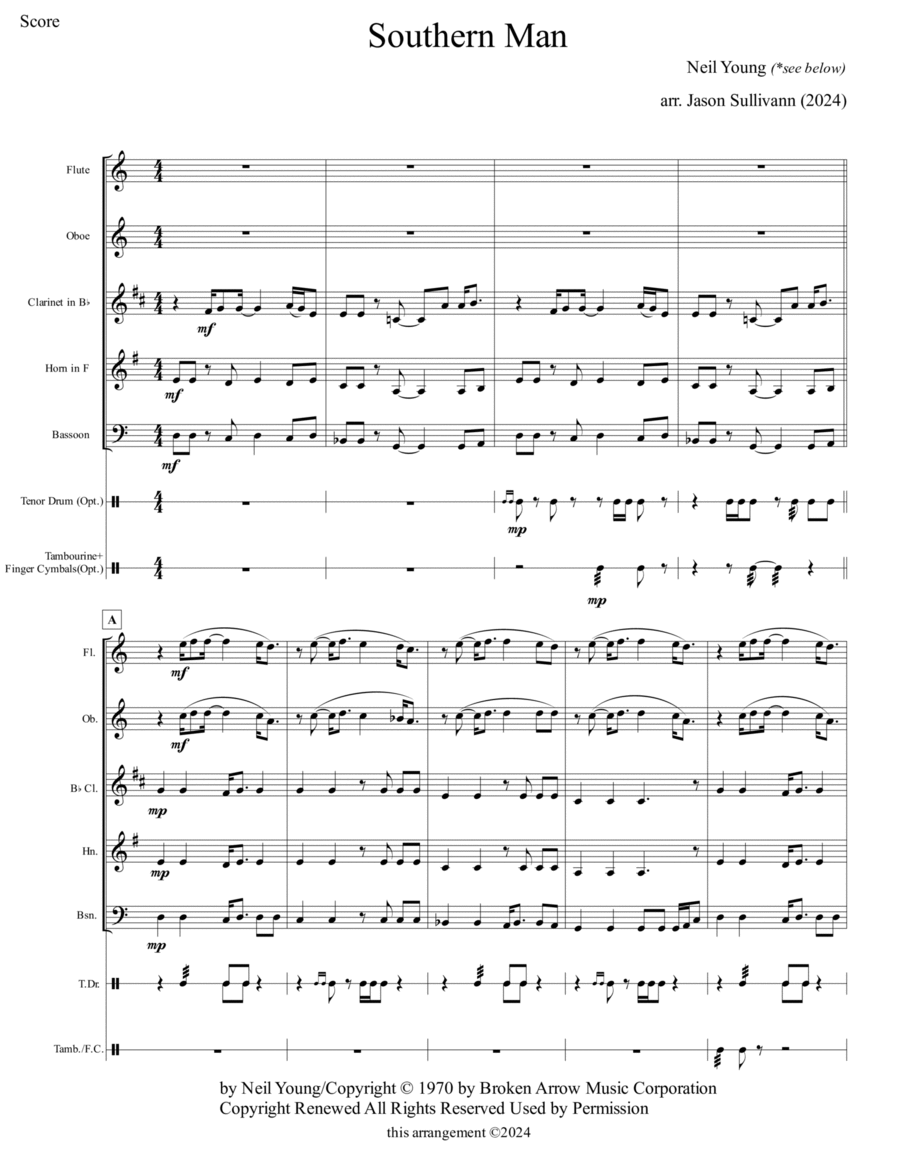Woodwind Ensemble,Woodwind Quintet Bassoon,Clarinet,Flute,Horn,Oboe - Level 3 - Digital Download SKU: A0.1408410 By Neil Young. By Neil Young. Arranged by Jason Sullivann. Chamber,Folk,Historic,Multicultural,Rock,World. 22 pages. Green Bicycle Music #990996. Published by Green Bicycle Music (A0.1408410). Https://en.wikipedia.org/wiki/Southern_Man_(song)https://en.wikipedia.org/wiki/Slavery_in_the_United_StatesThis is a setting of Neil Young's SOUTHERN MAN (from the album AFTER THE GOLD RUSH) for woodwind quintet and optional percussion.The song is chosen by the arranger as a reponse to recent confisions surrounding the poisonouslegacy of Slavery, and various questionable debates regarding its history in America.Ironically, the arranger was originally ready to mention the song written as a response to thissong by the band Lynyrd Skynyrd, but found interesting information on Wikipedia (the links areprovided). Apparently the song by Young that spurred Lynyrd Skynyrd to write SWEET HOME ALABAMAwas the one titled simply ALABAMA, which is on the album HARVEST. Also interesting was the information that the bands and composers did get along, even showing this by wearing each other'st-shirts when performing.This arrangement is advanced grade 3 or grade 4, with no extreme playing in the outer registers,or meter changes, etc.. The optional percussion can be added to create a more solemn-march feel.The socio-political element is not varied or diffused in any way. If possible, the complete lyricsshould be contained in program notes. This piece offers a serious contemplation of the history andhorror of Slavery in America.
